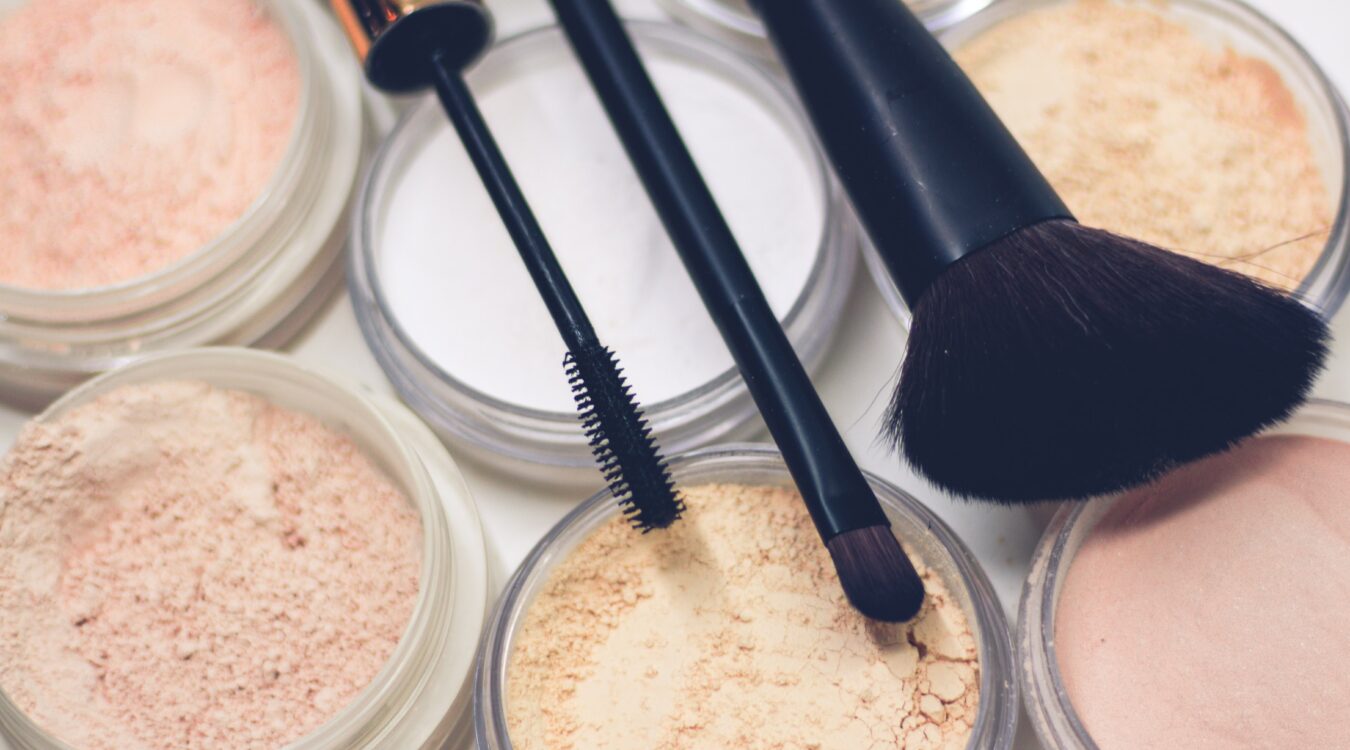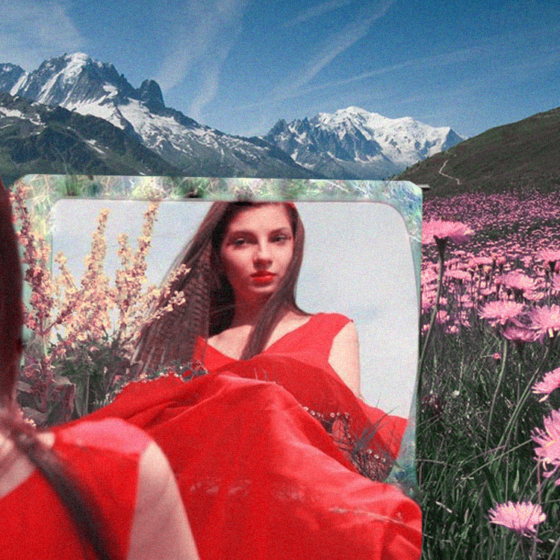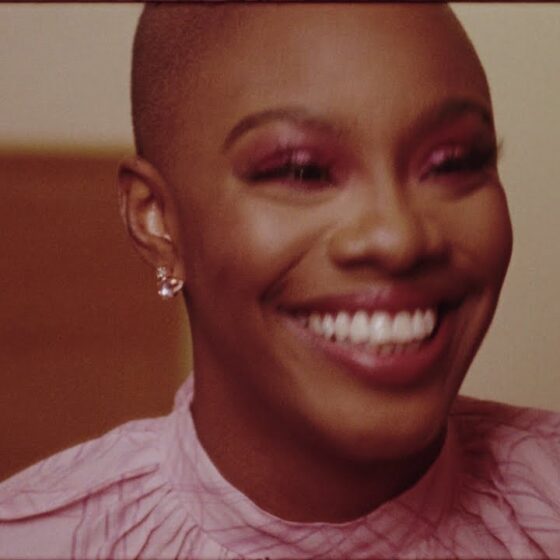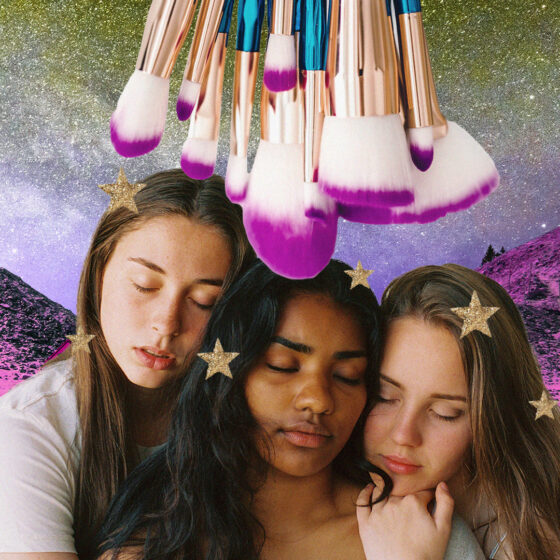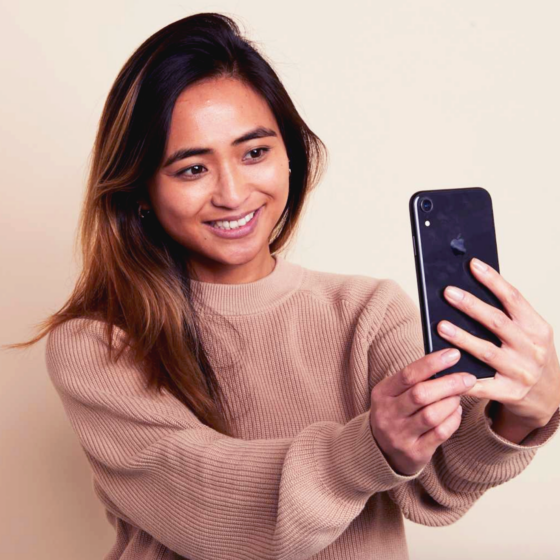I catch a glimpse of my reflection in the mirror. I double-take. It isn’t what I usually see.
Who is that woman? She looks comfortable in her skin. Her hair piled on top of her head in a messy bun, big hoop earrings framing a face devoid of even a swirl or smear of make-up . It isn’t like her, or who she used to be.
When I was a teenager, I layered on inches of foundation like armour, a telltale line around my jaw. I never really mastered the art of blending, there was nothing natural about it, my caked-on face. I crayoned a bold, black line along the base of my eye. Smudged colours of grey and brown and black on my lids; as dark as the angst I felt inside. Black mascara built up in big spidery flakes on my lashes, so thick they looked like they might snap off and crawl away. My eyebrows hung like painted slugs. My lips always a dolly mixture pink or red, the colour of blood.
“Oh I could never carry that off,” people would say, the compliment rolling off their tongues. They didn’t know I needed it. I didn’t do it for a one-off special occasion. It made me who I was, or who I thought I wanted to be, a picture I painted for the world.
You see, I was covering over the bits I hated the most: my paleness, my blondeness, the parts of me that seemed to make me invisible. Eyebrows and lashes so fair it looked like I didn’t have any. Instead of embracing it, I slathered on black dye that used to burn my skin I left it on so long, to get the colour dark enough to last.
I put my make-up on every single day. I wouldn’t leave the house without it. I wore it to the gym. When I went swimming, I bobbed along doing breaststroke so I didn’t have to duck underneath, my make-up remaining fully intact, my protection. I didn’t want people seeing me as me.
My make-up has become part of who I am, my image. Who would I be without it?
If I ever dared to strip it away and actually venture out, the mean comments would follow. Probably not intended. But there’s only so many, “oh you look so tired, are you okay?” queries a girl can take before she runs to her make-up bag to reach for her concealer. “I’M JUST NOT WEARING MAKE-UP!” I scream inside. Why can’t I be one of those people who wakes up looking just fine?
Perhaps I made it this way. I have worn make-up every day for my entire life, no wonder people are shocked when my mask slips away. I have spent so much of my life consumed by what others think of my face that I have brushed aside how I feel. Allowed others to dictate what I feel I should look like.
Bare-faced chic
Now, I am on week seven of the new bare-faced stripped back version of myself. It marks the longest period of time during my adult years that I have ever gone without ‘my face’ on. The last bit of dye has vanished from my brows. I don’t bother with a quick slick of mascara in the morning, no blusher to make me look more alive.
And I am learning to love it, all those little parts of me I have always seen as flaws.
When I go for my daily walk or pop into my local bakery to buy a loaf of bread, no one is recoiling in horror at how grotesque I look. When I log on for a video chat, not once has any of my friends told me that I look pale or ill, as they might have before. Perhaps we all have bigger things to contemplate right now. I am not alone in this. According to research, 68 per cent of people are feeling more self-confident in lockdown. And just 33 per cent of women who usually wear make-up are still doing their face while at home.
So I took to Instagram to do a (very scientific) poll of my own. I was somewhat surprised at the results. When I asked who’s been wearing make-up, it was an exact 50/50 split! And when I asked if people are feeling differently about their face, the comments were just as diverse. “I hoped [lockdown] would change how I feel, but sadly I can’t stand not wearing [make-up]”, said one woman; “I’m wearing more make-up as I have to see myself more,” said another, and a response that made me sad read: “I like [my face] less and less everyday.”
But I loved seeing comments from those who are, like me, learning to love the face that looks back at them from a Zoom call and in the mirror. “I no longer think my face without make-up looks tired, it just looks like me,” said one; “I’ve worn make-up everyday since I was 10, so I have loved getting to know my face without it,” was another that made me smile.
A resounding response from those still wearing make-up was that it grounded them to who they are, a ritual that helps and heals: “Making up my face is like an art to me, I find it relaxes me,” “I feel more professional in it, and it helps me separate ‘work’ from ‘home’.” And for another respondent, “It’s a shield between me and my working life. I video into meetings so I want to keep that [separation]. My bare face is for those I feel most comfortable and content with. It’s a trust thing […] Because there’s nowhere to hide. That’s just me. No paint or gloss.”
I am not sure how my face will fare on the other side of this. But the world is moulding into a different kind of place too. How long will we have to stand two metres apart? When will I be able to hug my mum? Nights out are out of the question, so my red lipstick can wait. Perhaps not forever, just not for now. A pause. A moment for reflection.
I am allowing myself to be this version of myself, and make-up will just weigh me down. I have wanted to truly like my face like this for my entire adult life, but I’ve never allowed myself the time… Endless meetings, drinks at the pub with friends, freelance shifts where I must meet new people, trips to the theatre, meant that my make-up routine stayed firmly in place, giving me the confidence I needed at the time. But a break from the norm has allowed me to explore what I look like without.
And without constantly encountering other people that I inevitably end up comparing myself to, I am learning to love my face just as it is – even on those endless Zoom calls. I hope I can make it last, this new feeling of contentment with my unedited face.

